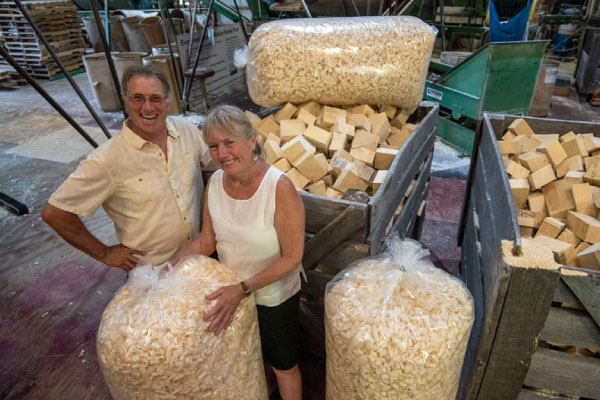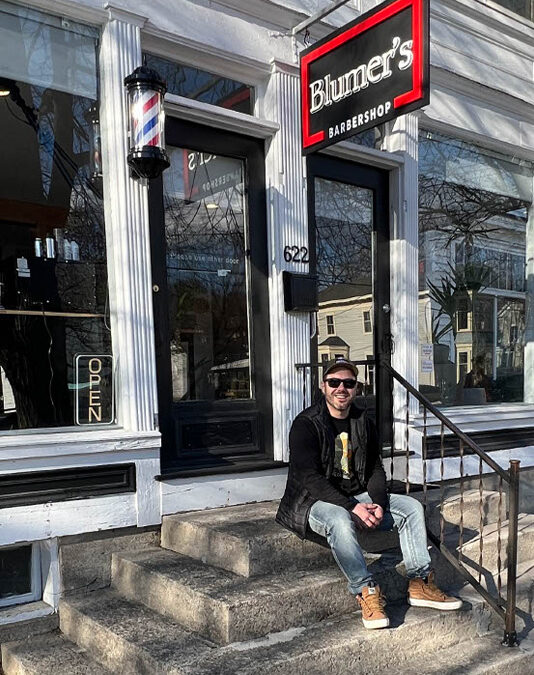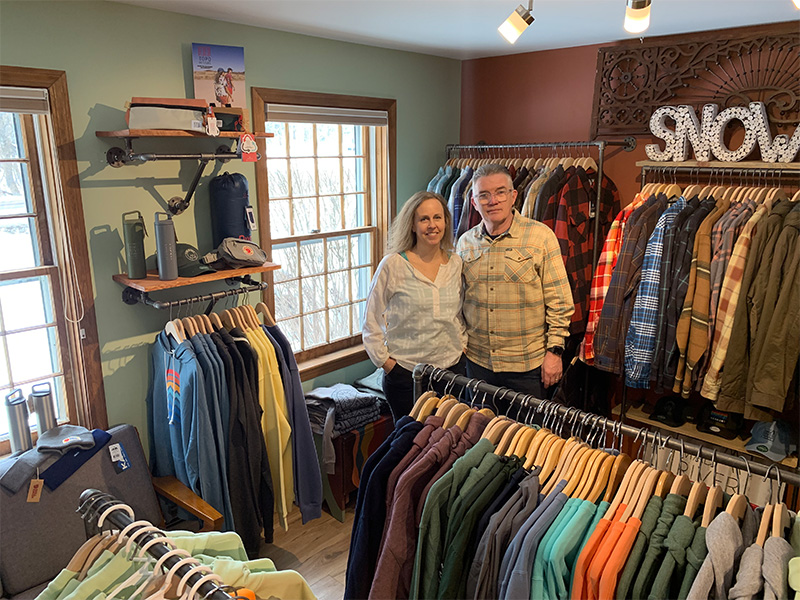By KEN PICARD | Photo Credit JEB WALLACE-BRODEUR
When Jim Lovinsky cofounded Sylvacurl of Vermont in 1993, he didn’t envision it as a full-time, year-round job. Instead, he let the company, which makes and sells an all-natural wood alternative to plastic and polystyrene packing material, grow organically. And for much of its 27 years, Sylvacurl remained a small, mostly seasonal business, ramping up its operations in early fall in preparation for preholiday shipping orders, and then tapering off by mid-January.
But this year, after the pandemic hit and millions of Americans switched from buying consumer items in stores to ordering them online, demand for Sylvacurl’s eco-friendly packaging products exploded six months early.
It began, Lovinsky recalled, with an early spring phone call from one of his largest customers: Greensboro cheesemaker Jasper Hill Farm, which normally restocks its supply of Sylvacurl in August or September.
“All of a sudden I started getting orders from all over the place, which was incredible,” he said. “We had a very good spring.”
Indeed, Sylvacurl’s sales in the first half of 2020 were three times what they were the year before. Lovinsky suspects that much of it was due to consumers, stuck at home and not spending money in restaurants and stores, who began spending their federal stimulus money online. And as his clients’ internet sales took off, so did Sylvacurl’s.
The idea for the product originated in the early 1990s, Lovinsky explained, about the time when the Champion Lumber Company began scaling back its Vermont timber operations and selling off its vast forest holdings in the Northeast Kingdom. As the state’s wood products industry started suffering huge losses, Lovinsky — who at the time worked at a wood-turning company — read about wood shavings that were used as bedding material at racetracks in the South. He researched whether a similar product would work well as a lightweight and sustainable alternative to packing peanuts.
As he discovered, popple, or aspen trees, were ideally suited for this use. Popple grows quickly and abundantly throughout Vermont but has little market value. Lovinsky’s longtime supplier, Robert Lamarre, at Lamarre’s Sawmill in Brownington, described it as “junk wood” that’s also used to make toothpicks, tongue depressors and pulp for paper. But popple produces consistent white curls that hold their shape well in shipping containers. And, unlike pine and cedar, it has very little scent.
Lovinsky opened a small facility in a building in East Hardwick, which he calls their “shake-and-bake operation.” There, Lamarre’s mill delivers wood blocks that are cut specifically to fit Sylvacurl’s patented processor. The blocks are shaved into curls, shaken to remove sawdust, baked in dryers, then dumped into a hopper to be bagged and shipped.
Because the curls contain no added chemicals, perfumes or artificial colors, once they’re used as packing material, they can be composted, applied as livestock bedding or spread on gardens. In fact, Lovinsky’s wife and business partner, Mary-Ellen, raises goats and grows garlic commercially and routinely uses the curls for both operations.
In the late 1990s and early 2000s, Lovinsky recalled, the potpourri industry took a keen interest in Sylvacurl. Initially they bought it as filler material — that is, until the Southeast Asian market began producing more exotic and cheaper botanicals to replace it. “Who wants lowly wood curls when they can get that?” Lovinsky said.
However, most of Sylvacurl’s other clients have stuck with him over the years, in large part, he said, because their own customers find them visually appealing and environmentally friendly. These clients include iGourmet, an online food company in West Pittston, Pa.
“They order a trailer load, which is 500 bags. That’s big for me,” Lovinsky said. “Most of my customers order 10 to 30 bags at a time. I even have customers who show up in their car and pick up three or four bags. And that’s fine with me.”
In fact, Lovinsky heard from a woman who had ordered a product from Blanc Creatives, a Sylvacurl client in Charlottesville, Va., that makes hand-forged pots and pans. As he explained, the woman received an order from Blanc Creatives containing Sylvacurl, which she later used to light her barbecue grill. “She liked them so much,” he added, “she ordered a carton.”
Though business is booming and likely to get busier come fall, Sylvacurl hasn’t hired any employees; in fact, much of the time Lovinsky does all of the work himself, with occasional help from family members.
But he still works a full-time job as executive director of the Lamoille Housing Partnership, a Morrisville nonprofit that builds and operates affordable housing. Lovinsky has consulted with the local Small Business Development Center on a transition plan for if and when the time comes to scale up the business. Now 67, he expects to retire soon and devote himself full time to growing Sylvacurl.
“This [pandemic] may accelerate that a little bit,” Lovinsky added. “We’ll see how far it goes.”
A version of this article first appeared on sevendaysvt.com and in Seven Days newspaper, a Burlington-based newsweekly published on Wednesdays and distributed for free at more than 1,000 locations in northern and central Vt. and Plattsburgh, N.Y.




